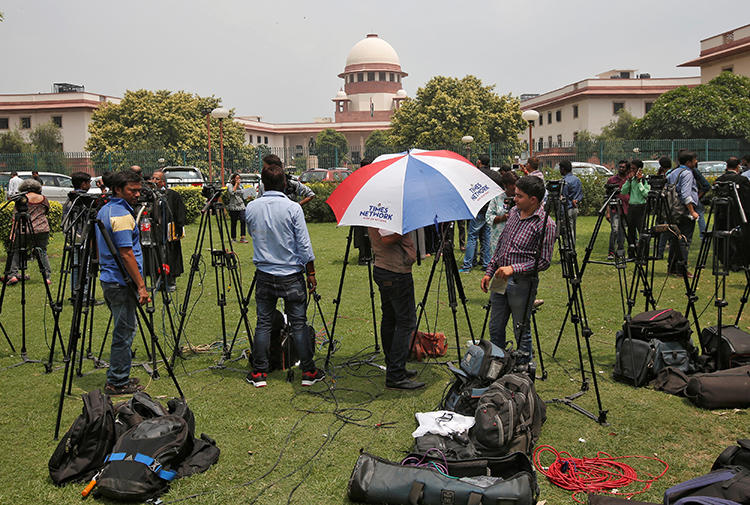The government of Narendra Modi, through Attorney General K K Venugopal, on March 6, 2019, threatened to invoke the Official Secrets Act against daily newspaper The Hindu and news agency Asian News International (ANI) for critical reporting on a fighter jet deal in which the government has been accused of corruption, according to news reports.
Venugopal alleged in the Supreme Court on March 6 that both news outlets used documents stolen from the Defense Ministry in their reporting, and said the government would pursue criminal charges against them under the colonial-era Official Secrets Act, according to news reports. Conviction under the act could result in three to 14 years in prison, according to news reports; Venugopal did not specify who at the outlets would be potentially be targeted.
The Times of India and the Editors Guild of India reported on March 7, 2019, that Venugopal “clarified” that the government would not take legal action against the journalists who used these documents. CPJ reached out to Venugopal for comment, but a text message to his private secretary was not returned.
The documents in question revealed internal disagreement in the Defense Ministry over the involvement of the prime minister’s office in negotiation over the multibillion-dollar purchase of Rafale fighter jets from French aircraft manufacturer Dassault Aviation in 2016, according to The Hindu. The documents revived criticism of the government over its handling of the purchase, as explained by India Today.
Speaking to CPJ on March 7, N Ram, chairman of The Hindu Group and the author of several investigative pieces on the Rafale deal in The Hindu, rejected the allegations. “We do not accept that these are stolen documents. Let the government call it what it wants but we have published [the documents] in public interest,” he said. Ram told CPJ that he will not reveal his sources. “In India, right to protect source is absolute. We are committed to protect the confidentiality of our sources,” he said.
On March 8, Venugopal told news agency Press Trust of India that the documents were not stolen, but photocopied.
The Supreme Court is currently hearing a petition on whether the government should be investigated for corruption, according to news reports. Ram’s articles are based on documents that have become the basis for argument against the government in the court, according to the Huffington Post.
“We are well protected under the Article 19 (1) (a) of the Constitution as well as under the Right to Information Act, specifically sections 8(1)(i) and 8(2),” Ram told CPJ. Article 19 (1) (a) of the Indian Constitution guarantees freedom of speech and expression. Section 8(1)(i) of the Right to Information Act addresses public disclosure of cabinet papers once decisions have been taken, and Section 8 (2) overrides the Official Secrets Act for larger public interest.
When contacted via text message, Asian News International editor Smita Prakash declined to comment. A text message to the spokesman for the Ministry of Defense seeking comment was not returned.
In October, Dassault Aviation’s Indian partner, Reliance Group, sued news channel NDTV for more than US$1 billion over its critical coverage of the Rafale deal controversy, CPJ reported at the time. It also targeted other media platforms like The Citizen and The National Herald with similar defamation suits. Neither suit has come to trial.
